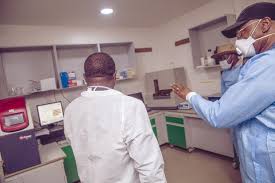Laboratory, Dutse.
He said that NCDC was currently using the Polymerase Chain Reaction (PCR) method to test for the COVID-19 virus, in the absence of validated alternative methods.
“At the moment, the COVID-19 tests that we report daily are coming from the PCR, they detect the genetic information of the virus and the RNA. That’s only possible if the virus is there and someone is actively infected.
“By detecting viral RNA, the tests can tell whether or not someone has the virus very early on,” he explained.
The director-general said that PCR remained the most accurate method to determine who was infected.
Ihekweazu noted that by scaling up on laboratory testing, the NCDC and other relevant government institutions would get a better understanding of the level of spread of the virus.
”By the end of June, our goal is to include at least 10 more laboratories with current Gene-Xpert capacity in the network for COVID-19 testing,” Ihekweazu said.
The director-general noted that PCR tests could be very labour intensive, with several stages at which errors might occur between sampling and analysis.
”This is why the agency has focussed on strengthening quality assurance in its network of laboratories.
“Countries have adopted varying strategies for COVID-19 diagnosis, and for us in Nigeria, it is important that we get it right.
“Nigeria has its national testing strategy for COVID-19 with detailed information on how we will ramp-up testing for various phases of transmission by leveraging existing capacity and technology.
“We are thinking ahead and also have plans in place to meet the demands for testing at various points of the response,” he said.
source: TheGuardian

 The Nigeria Centre for Disease Control (NCDC) says it has activated three additional laboratories, bringing the total number that can carry out PCR testing for Coronavirus (COVID-19) pandemic in Nigeria to 33.
The Nigeria Centre for Disease Control (NCDC) says it has activated three additional laboratories, bringing the total number that can carry out PCR testing for Coronavirus (COVID-19) pandemic in Nigeria to 33.




